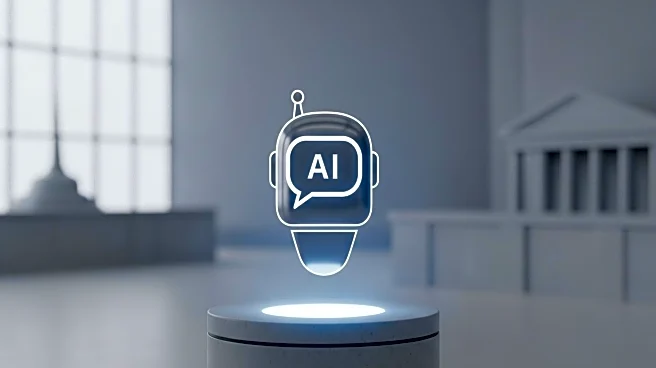What's Happening?
The Albanian government has appointed an AI-powered chatbot named Diella as the new minister focused on combating corruption. Prime Minister Edi Rama announced that Diella, which has been operational since January as a virtual assistant on the e-Albania platform, will now be responsible for monitoring government contracts. Built on OpenAI's language model and Microsoft's Azure cloud platform, Diella's role is to ensure that public tenders are free from corruption by reviewing proposals and awarding contracts based on merit. This move is part of Albania's ongoing efforts to address corruption, a significant hurdle in its bid to join the European Union.
Why It's Important?
The appointment of Diella as a corruption minister represents a novel approach to tackling corruption in government procurement processes. By leveraging AI, Albania aims to reduce human bias and the potential for corrupt practices in awarding government contracts. This initiative could serve as a model for other countries facing similar challenges, potentially transforming how public procurement is managed globally. However, the effectiveness of AI in this role depends on its deployment and the integrity of the data it processes. Successful implementation could enhance Albania's credibility in its EU accession efforts, while failure could highlight the limitations of AI in governance.
What's Next?
As Diella begins its new role, the Albanian government will likely monitor its performance closely to assess its impact on reducing corruption. The success of this initiative could prompt other nations to consider similar technological solutions. However, there may be scrutiny from international bodies and local stakeholders regarding the transparency and fairness of the AI's decision-making process. The government may need to address concerns about AI bias and ensure that the system is not manipulated to serve vested interests.
Beyond the Headlines
The use of AI in government roles raises ethical and legal questions about accountability and transparency. While AI can potentially reduce corruption, it also poses risks if not properly managed. The reliance on AI for critical governance functions could lead to debates about the balance between technology and human oversight in public administration.








